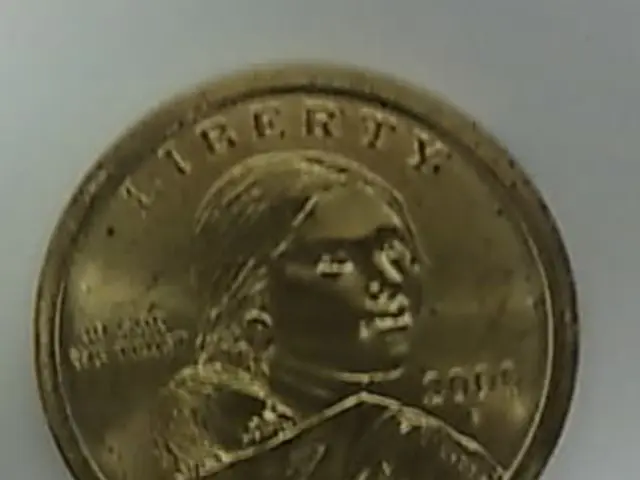Let's Talk "Victory Day": Unpacking Russian Propaganda and the Memory Wars
Manipulative Use of Memorial by Russian Propaganda
On May 8th, as we mark 80 years since the end of World War II in Europe, Russian celebrations are once again raising controversy. Historian Corinna Kuhr-Korolev of Osteuropa explains how the battle over historical narratives, or the "memory wars," continues today, shedding light on the impact of current conflicts on remembrance. "The past is once again being used as a weapon," she says.
ntv.de: So, how is Russia celebrating "Victory Day" this year?
Kuhr-Korolev: In Russia, May 9th is the big day—commemorating the Soviet Union's victory over Nazi Germany in what they call the "Great Patriotic War." The event is celebrated with grand parades, military displays, and patriotic fervor across the nation. This year's celebrations have an extra edge, as Putin looks to showcase Russia's strength and assert its role on the global stage.
Modern Twist to an Old Tradition: Traditionally, military parades on Red Square were held during major anniversaries like the 1965, 1975, 1985, and 1990 commemorations. But since Putin took power in the 2000s, these parades have become annual events, with an increasing militaristic focus.
What Can We Expect This Year?With international tensions running high, particularly due to Russia's actions in Ukraine, this year's parade aims to issue a strong message of power, both internally and externally. Russia wants its historical achievement and global political influence celebrated and recognized.
Europe's Division: Many European countries, however, continue to view the end of World War II differently. Germany, for example, marks the day on May 8th as "Liberation Day," while Russia commemorates it on May 9th as "Victory Day." This discrepancy, Kuhr-Korolev explains, stems from separate surrender agreements signed at different locations and times during the war.
Memory Wars: The dissimilar perspectives on the end of the war have led to ideological conflicts and a "memory war" of sorts. Today, history is being manipulated to justify territorial claims and political ambitions. For instance, the interpretation of the Soviet Union's role in the war and its influence on Europe has become a key flashpoint between Russia and countries such as Ukraine, Poland, and the Baltics.
The Baltic Connection: Many of these countries were once part of the Soviet Union and suffered greatly under its occupation. Today, they view Putin's Russia as reviving those imperialist tendencies of the past. The resurrection of a "memory war" is seen as a revival of those same imperial ambitions, further exacerbating tensions.
In essence, the "memory wars" serve as a reflection of the current political landscape. By aligning with Putin or rejecting his narrative, countries are taking a stand in the geopolitical arena. As Kuhr-Korolev warns, participating in Russia's "Victory Day" celebrations is a political move and a statement of support for Putin's historical perspective, including his controversial actions in Ukraine.
Source: ntv.de
- Politics
- World War II
- Historical Narratives
- Moscow
- St. Petersburg
- Ukraine
- Poland
- Baltics
- Geopolitics
- Memory Wars
Enrichment Insights:
Evolution of Victory Day:1. Introduction and Early Years: Victory Day was first celebrated in the Soviet Union in 1965 to mark the 20th anniversary of the German defeat during World War II. It was initiated by Leonid Brezhnev as a way to boost the USSR's image internationally. The holiday gained prominence with the creation of monumental memorials and grand parades.
- Post-Soviet Era: After the fall of the Soviet Union, Victory Day became even more significant as other major Soviet holidays were abolished. It was revived under President Yeltsin in the 1990s as a means to reconnect with Soviet traditions and identity amidst economic and political turmoil.
- Putin's Era: Under Vladimir Putin, Victory Day has evolved into a major geopolitical event, focusing on military prowess and national pride. The parade resumed in 2008 on a grand scale, emphasizing the display of military might and the cult of warriorhood. The invasion of Ukraine has further amplified its significance, with Putin framing it as a continuation of the Great Patriotic War.
- The European Union, particularly countries like Poland and the Baltics, have distinctive perspectives on World War II's end compared to Russia, leading to ideological conflicts within the broader geopolitical landscape.
- As the European Union engages in discussions regarding the May 8th commemoration, the polarization of politics stemming from historical narratives surrounding the Great Patriotic War is evident.
- In an attempt to justify territorial claims and bolster political ambitions, history is being manipulated by various entities, creating a contentious "memory war" that intensifies tensions between nations.
- The EU may find it necessary to address the ongoing "memory wars" to foster unity and prevent the re-emergence of divisive narratives that run counter to European values and goals of peace and cohesion.








